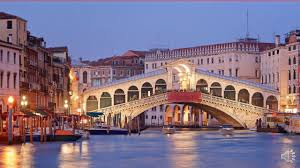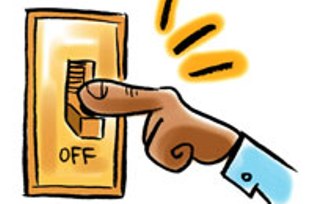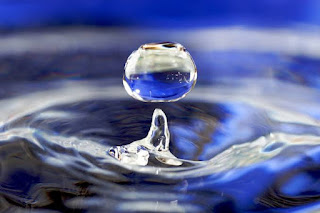Climate Justice Now! Fighting For Our Rights And Lives
Climate justice. A loaded term. What does it mean? Climate
change is caused by greenhouse gas emissions. These emissions are mostly caused
by fossil fuel use. Fossil fuels (coal, oil and natural gas) are used as energy
to power economic growth and to industrialize. For many years, since the
beginning of the industrial era, fossil fuels have been the main source of
energy for the industrialization of Europe, America and the entire western
world.
The nature of the planet’s atmosphere is that it is
one, and therefore emissions released in any part of the world will affect the
atmosphere anywhere. As these greenhouse gases absorb solar radiation leaving
the earth, air temperatures rise, and the entire global climate system is
affected.
The difference however is in the impacts and
effects. And this is where climate justice comes in.
 |
| image courtesy |
Greenhouse gas emissions
causing climate change are largely from one area but climate change impacts
will hit every single country on the planet irrespective of their contribution.
Even the least responsible.
The problem with this scenario is that these largely
innocent parties receive little help in protecting themselves. And the
polluting entities till now still won’t accept to cut emissions by required standards
because doing so would hurt their economies.
So they protect themselves at the expense of others.
Some facts about Africa. Africa is the second
largest continent in the world, both in terms of population and size. Out of
all the seven continents, it is historically the least emitter. Africa lies
between the tropics and relies heavily on natural resources and agriculture as
the economic mainstay.
Agriculture on this continent is rain fed, and relies
almost entirely on the natural patterns of precipitation. These patterns of rainfall
are now heavily and negatively altered by climate change.
The lives of over a billion people are affected.
People who heavily rely on their farms and animals to give their children an
education, to get food to eat, to have dignified shelter and all the basic
necessities of life. These people are not responsible for climate change, but
are now suffering heavily from it. Farms flooded by sudden flash floods, or
failed harvests due to incessant, repetitive and strong droughts.1000 people
lost their lives last year due to cyclone Idai in Mozambique and thousands
watched their homes washed away.
In 2020, large swarms of desert locusts invaded Kenya
from Somalia. This invasion was brought on by unusually warm and rainy weather
in the country, prime conditions for the insects who devour every ounce of
green in their sight.
Farmers, most of them small-scale, are directly on
the path of these marauding insects. Wildlife sanctuaries too are on the
receiving end.
 |
| The locust invasion in Kenya. Image - participatory gis |
Victims of climate change. Something they are
largely not responsible for.
Is it fair?
Climate justice argues that climate action is more a
matter of human rights than anything else. This is true.
Africa and Asia have the biggest populations of
young people. The youth are also largely innocent of causing climate change.
Current climate change impacts already are powerfully destructive. On the
current emissions trend, they are projected to increase in strength,
unpredictability and severity.
It is worth noting that as it stands now, despite
the amount of information, pacts and agreements about climate action already
present, emissions still continue rising and the world, especially the biggest
emitters; developed countries; are not doing enough and neither are they
willing to in order to lower their emissions.
People at the highest level of power, those tasked
with making decisions and policies are significantly older and will not as a
matter of fact be alive to face the impacts of their decisions in years to
come.
These consequences will be felt by the youth of today and their children,
whose health, food security, security, education and their very lives will be
on the line, increasingly facing the worst ravages of an unpredictably changing
climate.
Yet their voices are not heard. They are not given a
chance to defend their right to life. Decisions which will affect their lives
both in the present and future are being made by people who are not them.
Sea level rise is threatening the existence of
island countries and low lying coastal areas. The sea is swallowing up land and
flooding mangrove forests and fishing villages, causing inhabitants to become
climate refugees, uprooting them from the only homes they have ever known. They
are forced to migrate inland with the attendant repercussions on population,
pressure on land and social dynamics.
Island nations such as Kiribati and most of the
Caribbean are under a very real threat of being wiped out from existence. And
as saline sea water invades land, the more groundwater aquifers storing
freshwater are polluted. These people’s livelihoods, their countries’ economies,
their lives are at stake. Should they become stateless?
In 2019, hurricane Dorian hit the Grand Bahama leaving
behind a multibillion trail of destruction. In 2018, Puerto Rico was devastated
by similar storms.
Are their lives less important than those of people
in the western world?
Due to social dynamics, women and girls often lack
equal representation at the decision making table and when it comes to distribution
of resources. In some communities girls are not given an education similar to
boys and may therefore lack enough knowledge about climate change. The female
gender also works most with the environment and natural resources, because of societal
norms requiring them to do domestic chores and subsistence farming.
All these factors mean that women suffer more from
the consequences of climate change than men.
But their voice and therefore
rights are rarely upheld when it comes to climate action.
Indigenous groups rely on nature in many aspects of
their lives. But as climate change hits everywhere in the world, their lands
are not spared either. This has the compound effect on their livelihoods and
way of life as well.
As researched and studied, communities of color, the
poorest, those from low income neighborhoods stand to lose the most from
climate change because they lack the financial muscle or political representation,
to both raise awareness or fight for resources to create resilience, overcome
loss and damage and rebound in case of climate change instigated disasters.
Developing countries, in addition to being least
responsible for climate change, also lack the adaptive capacity needed to cope
with climate change. Their economies are still growing and take years and a lot
of resources to rebound when hit by the economic impact of extreme climate
disasters.
They lack the economic firepower to cushion
themselves or the ability to cut their relatively low share of greenhouse gas
emissions. This notwithstanding, they continue to bear the brunt of climate
change.
Despite all this information, the developed world
still won’t commit to significantly and effectively cut their emissions.
Their contributions to climate finance which is used
to bail out hard hit countries, help them cut their emissions as well as create
resilience is still way below par.
This is what climate justice is about.
Are the lives of these most affected groups not worth
as much as those from polluting countries?
Are there people more important than others in this
world?
The polluter pays principle states that whichever
polluting entity that causes damage to the environment, will also be
responsible for fixing it.
This lies at the crux of climate justice, and is
what stakeholders from affected groups are fighting for.
Climate justice is that we all have the right to
life, and some people’s welfare should not be upheld at the expense of others.
We ALL have the right to a safe and healthy planet,
and it is paramount that this is upheld at all levels and in both actions and
words.




Comments
Post a Comment